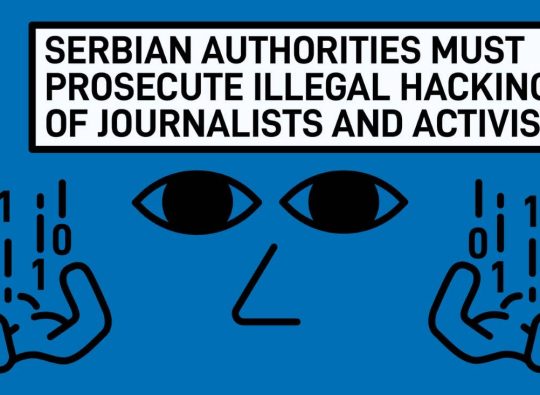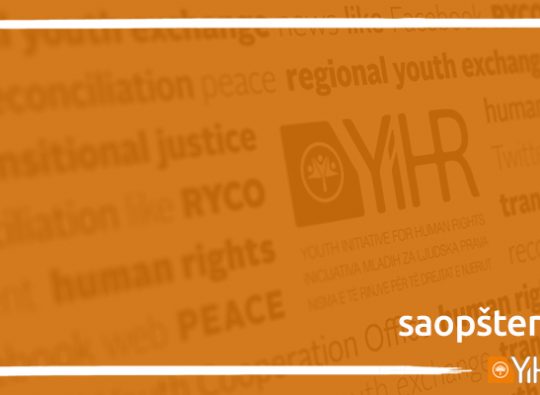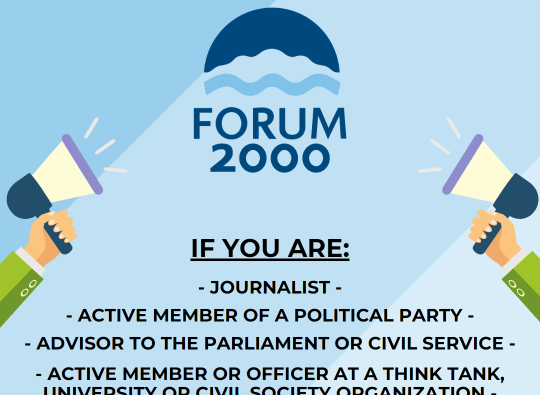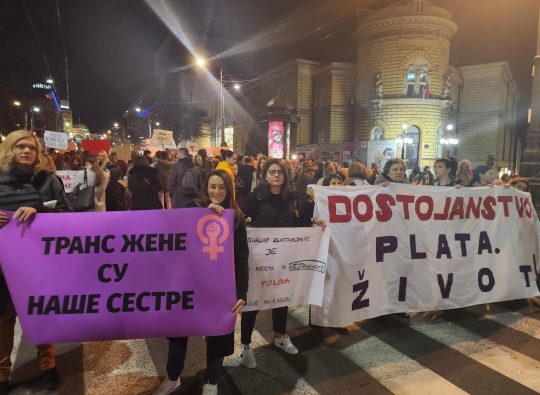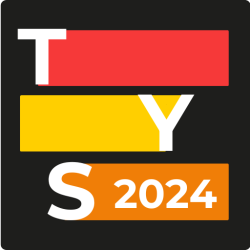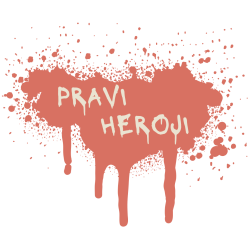“Navigating the New Regional Context”
The first panel largely focused on the Western Balkan’s failure to reconcile with the legacy of the wars of the 1990s, highlighting the glorification of violence and war crimes throughout the region. Even in Croatia, a European Union (EU) member state, truth and reconciliation processes have largely come to a halt post accession. The region’s failure to reconcile with past violence has contributed to the re-emergence of nationalism.
As Sofia Todorović, YIHR Serbia Program Director, explained, peace can not be achieved without large scale-reconciliation. We must look to the past, critically examining the actions of the governments on behalf of the people.
“The wars of the 1990s are some of the most documented conflicts in history. We need to use this knowledge, this documentation to build a better future,” said Todorović.
Building on Todorović’s remarks, Branka Vierda, program director for YIHR Croatia, emphasized the role of civil society within the reconciliation process. Vierda explained the importance of building a diverse coalition of young activists, civil society organizations, and academics.
The panel included program directors of the YIHR offices – Sofija Todorović (YIHR Serbia), Branka Vierda (YIHR Croatia), Marigona Shabiu (YIHR Kosovo), Aleksandra Vukčević (YIHR Montenegro), founder and president of the Post-Conflict Research Center Velma Šarić, and moderator Milan Nikolić (journalist).
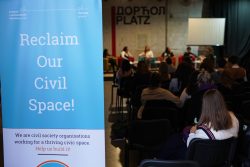
“Strengthening and Enhancing EU Perspective: Lessons Learned”
Within the past couple of years, the EU has moved its focus away from enlargement, focusing on the pandemic’s economic and psychological impacts, migration, and other regional conflicts. In response to Russia’s war of aggression against Ukraine, enlargement has been brought back to the forefront of the EU’s agenda. Given the renewed relevance of enlargement, moderator Srđan Hercigonja from Belgrade Center for Security Policy and panelist discuss the Western Balkan’s path to membership.
Starting off the panel, Naim Leo Beširi, from the Institute for European Affairs, noted that accession negotiations between the EU and Western Balkan countries have slowed, reflecting growing euroscepticism throughout the region. Panelists attributed the drop in enthusiasm to failures of both the EU and the candidate states. Serbia and other candidates have failed to fully commit to the accession process, demonstrating limited progress on membership criteria. The EU also bears responsibility as Beširi explained prior to 2020, the commission reports were not critical enough of Serbia. For years, the union failed to implement sanctions against candidate states that have acted counter to EU ideals.
Additionally, activist and consultant, Mario Mažić, explained that Croatia’s membership has also negatively impacted the accession process for the rest of the Western Balkans. Croatia has failed to fully align with EU values and policies post accession, consistently refusing to accept International Criminal Tribunal for the Former Yugoslavia (ICTY) conclusions. Mažić remarked, “why would Serbia and other candidate states ever ascribe to European ideals and accept the conclusions of the ICTY, if Croatia, an EU member state, doesn’t?”
The panelists included Naim Leo Beširi from Institute for European Affairs, an activist and consultant Mario Mažić, a journalist Serbeze Haxhiaj, Policy and Programme Manager, War Crimes and Transitional Justice, Penal Reform, Victims’ rights and support to the Ministry of Justice, Delegation of the European Union to Serbia Una Kelly and moderator Srđan Hercigonja from Belgrade Center for Security Policy.
“New Wave of Solidarity – Retrospective Through Injustice, Fear and Success”
To end the day, we heard the stories of youth activists in the region – their activist journeys, how they define their work, and the challenges they face. The panelists pointed out what’s the role of activism and how it influences their societies. However, when talking about activists living in a bubble, Anja Zloporubović explained that “we, activists, have to remind ourselves to get out of that bubble and talk about the topics we work on with people who have different opinions and do not do the same things as we do because otherwise activism doesn’t serve it’s purpose and doesn’t leave an impact” Alternatively, activist Dhurata Sefa, explained that growing up in Kosovo, marginalized on the basis of her ethnic identity, gender, and age, activism was never a choice, it was a necessity. Sefa explained, “Activism is a part of me. I have never thought about not being an activist.”
The discussion ended by highlighting the challenges faced by young activists. Dino Salihagić, an activist from Bosnia and Herzegovina has experienced serious attacks as an activist. Despite these attacks Salihagić does not back down, explaining that “our activism has consequences but what we do and what we advocate for is much more important than the people that oppose us.”
The panelists included activists from the region: Dhurata Sefa (Kosovo), Dino Salihagić (Bosnia and Herzegovina), Anja Zloporubović (Serbia), Kristina Janković (Montenegro), Marina Mlakar (Croatia), and moderator was activist and co-founder of Albanija.rs Fiona Jelići.
*Funded by the European Union
The Conference is implemented under the project “Reclaim our civil space!”. Project benefits from a 1,8 million € grant from Iceland, Liechtenstein and Norway through the EEA and Norway Grants Fund for regional cooperation.

